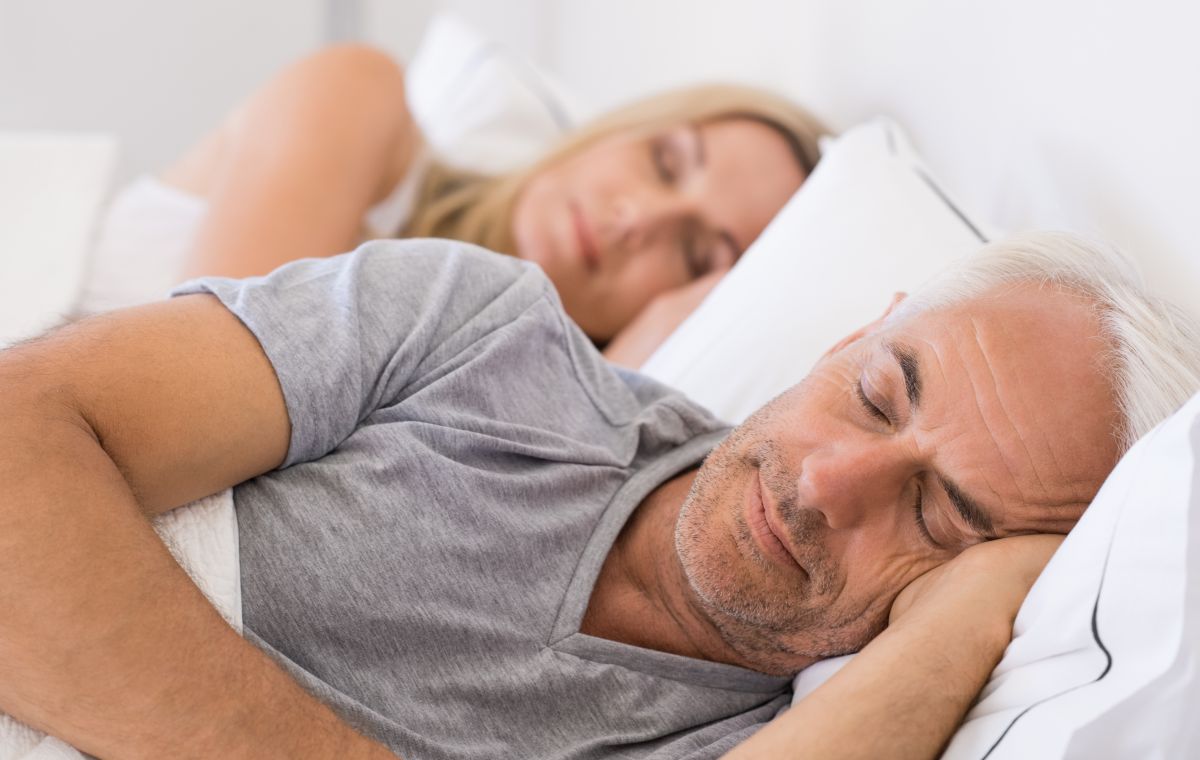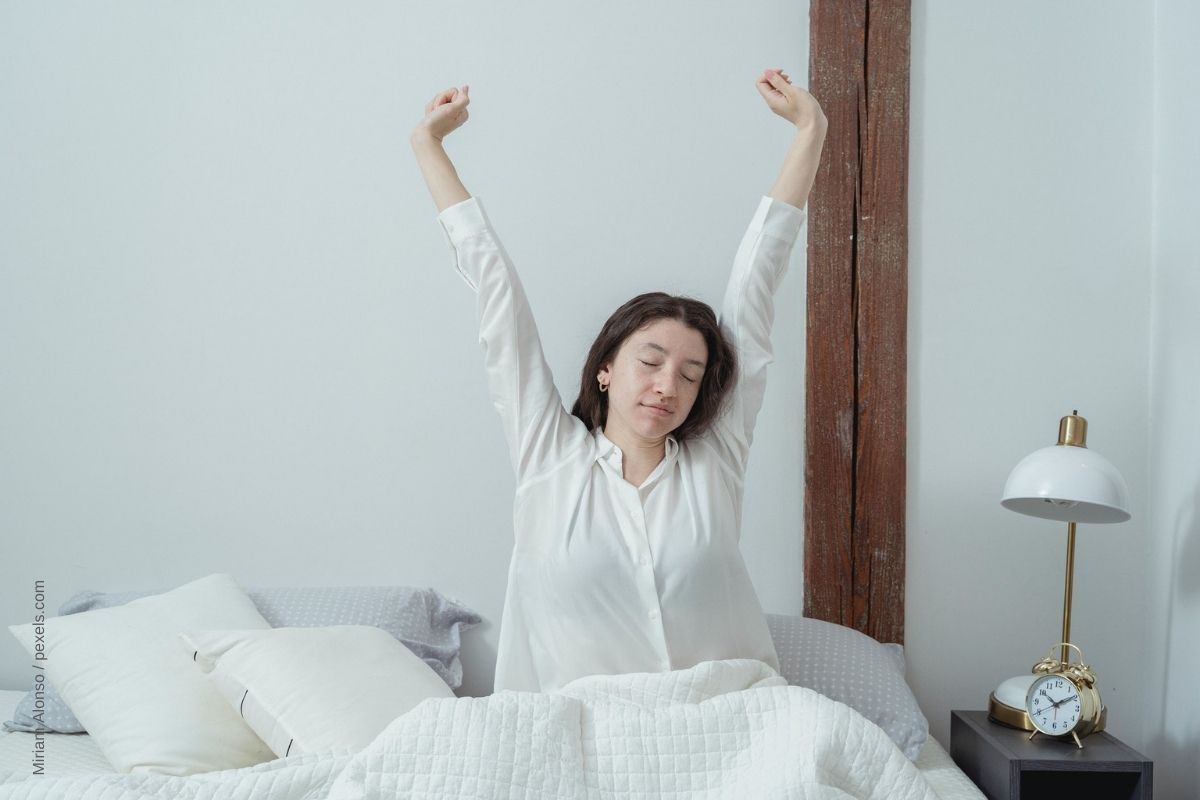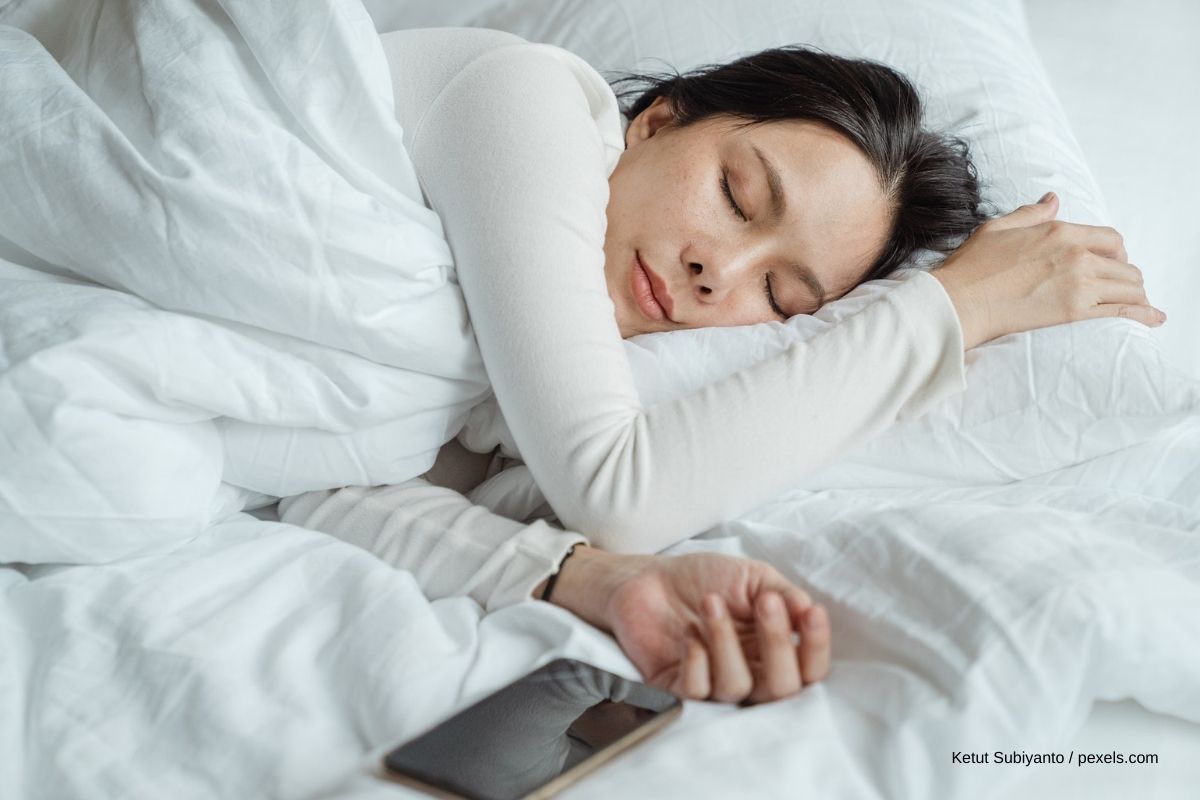What happens when we sleep? An explanation of the human sleep phases

What happens when we sleep? We all have a vague idea about sleeping: We know that at some point our eyes become heavy and we close them because we are tired. And maybe we even remember some interesting dreams we had at night. You may have heard about different sleep phases. But where do they differ from each other and what processes happen during these phases? We will tell you everything about the fascinating sleep phases.
What happens when we sleep? – The human sleep cycle
At night, we close our eyes and in the morning we wake up – looking at it from the outside, sleep appears to be a rather monotonous process. However, sleep is everything but boring and monotonous. The human sleep cycle is composed of different sleep phases during which complex processes happen in our body. The question: “What happens when we sleep?” can thus only be answered while taking the human sleep phases into account. Although the transitions between the phases are fluent, four to five individual sleep phases have been identified. They follow a cyclic pattern and together form a complete sleep cycle. In one night, we typically go through four to seven of those sleep cycles. As much as the sleep phases differ from each other, they have one thing in common: The processes that happen in our body during these phases ensure that we are physically and mentally fit so that we can start the next day.

Falling asleep – Slowly drifting into sleep
During the first sleep phase, mind and body are preparing themselves for the rest at night – stimulated by the sleep hormone melatonin. Melatonin causes us to slowly drift from an awake state into sleep. While we are falling asleep, we can easily be awoken since we are still susceptible to sounds and touches. Our muscle activity starts to decrease and our body relaxes. This is accompanied by a gradual slowdown of our breathing and heartbeat. Some people experience the feeling of falling, followed by a sudden muscle contraction. Usually, they cannot remember this once they wake up because our brain distributes chemical substances that cause us to experience the process of falling asleep subconsciously.
Light sleep – Comfortable relaxation
What happens during light sleep? After we have fallen asleep, our heartbeat continues to slow down and our body temperature slightly decreases. Our brain waves also slow down and eye movement stops. Therefore, light sleep is part of the so-called non-REM sleep. The light sleep phase is the shortest at the beginning of the night and its duration increases with every sleep cycle. Grown-ups spend roughly half of their nightly rest in light sleep. Interestingly, people do not remember having slept at all if they wake up during this sleep phase. This stands in contrast to waking up from deep sleep. But what causes these vastly different reactions?
Deep sleep – Important for recovery and regeneration
The deep sleep phase is sometimes described as the most important sleep phase because it is essential to our recovery. While our brain activity remains on its lowest frequency, the regenerative processes in our body start. Deep sleep is important for cell renewal, as well as immune defense. Our immune system focuses on the distribution of antibodies to keep viruses and bacteria in check. In addition to that, the hormonal balance in our body is regulated. Neurotransmitters that are important for growth and development are emitted increasingly during deep sleep. This explains the higher need for sleep in babies and children.

However, getting enough deep sleep is not only important for our physical wellbeing. Our mental fitness is just as dependent on the particularly regenerative deep sleep. During this sleep phase, our brain saves what we have learned and transfers it from our short-term memory to our long-term memory. This explains why it is effective to study right before going to sleep – try it out and take a refreshing nap after a round of studying.
If we are awoken from deep sleep – which, by the way, is not that easy – and are forced to get up, we feel overly tired and have no orientation. But what happens when we sleep and we wake up from an incomplete deep sleep? Phenomena such as sleep walking and sleep talking can be the result. Such behaviors have no connection to dreaming but are related to a disturbed deep sleep.
REM sleep– Processing the previous day
Many people find REM sleep particularly fascinating as it is the most active sleep phase for our brain. REM sleep is named after the characteristic movement of the eyes behind the closed eyelids (Rapid Eye Movement). Our breathing and heartbeat rise, whereas the muscles stay relaxed. This is for good reason: During REM sleep we are dreaming. Thanks to our rigid muscles we cannot translate our dreams into active movements. Dreams aid our brain in processing the events of the day. Just like the light sleep phase, the REM sleep phase increases in its duration with every sleep cycle: Whereas the first dream phase only lasts roughly ten minutes, the following dream phases become longer. The last dream phase can last up to an hour.

Conclusion: This is what happens when we sleep
What happens when we sleep? – By now, you should have a clear idea about the sleep phases that structure the human sleep cycle and what processes happen in our body simultaneously. Whether it is recovery, regeneration, strengthening of information, or processing impressions of the day – for healthy sleep, we must run through all sleep phases several times. To feel the positive effects of a relaxing night’s rest yourself you should therefore schedule enough time for sleep and adhere to good sleep hygiene.
Photo credits:
Rido / Adobe
Stock
Miriam Alonso / pexels.com
Ketut Subiyando / pexels.com
Cottonbro / pexels.com
